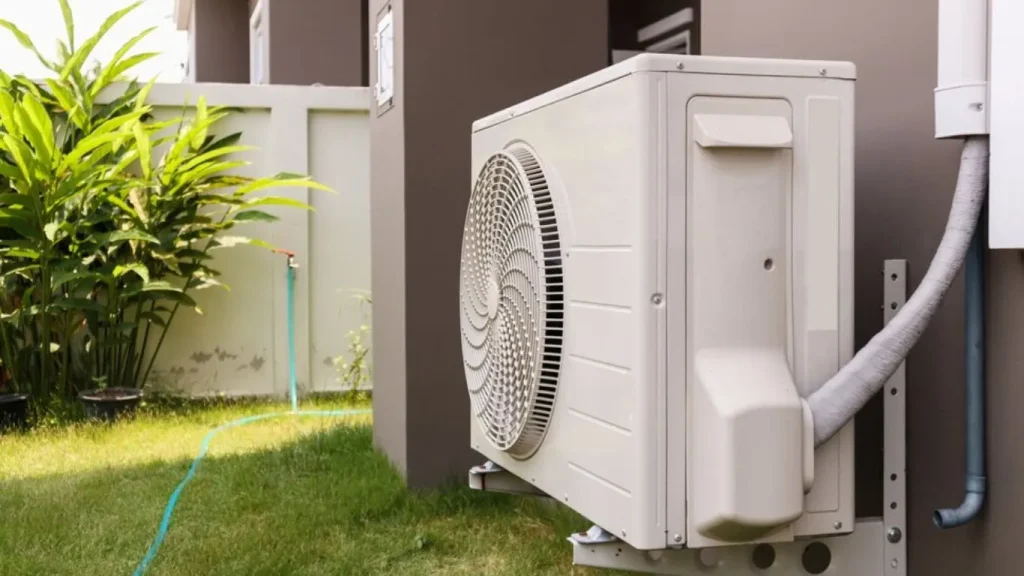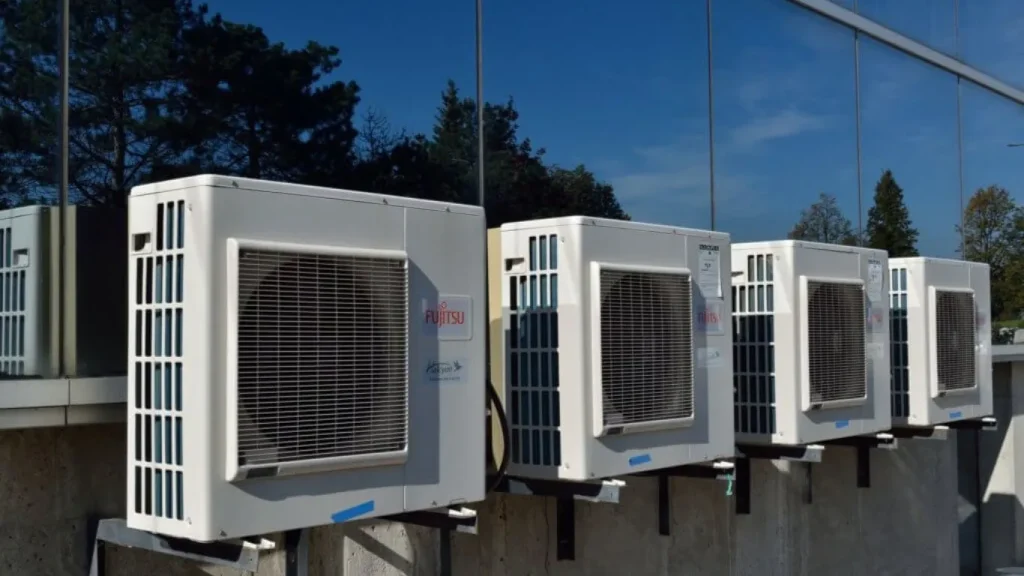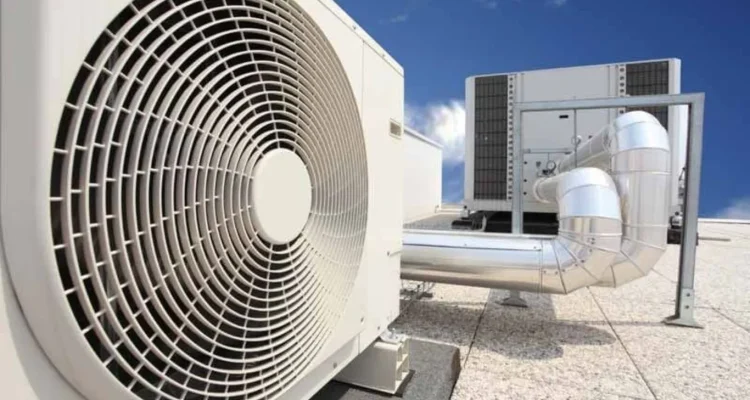Introduction to HVAC
Ever wondered what HVAC stands for and why it’s such a vital part of our daily lives? Whether you’re feeling the heat of summer or the chill of winter, chances are you rely on HVAC systems to keep your home comfortable. This guide will break down everything you need to know about HVAC—what it stands for, how it works, and why it’s essential for modern living.

What Does HVAC Stand For?
HVAC is an acronym for Heating, Ventilation, and Air Conditioning. This system regulates indoor air quality, temperature, and humidity to ensure comfort and safety within your home or office. Let’s dive into each component:
H: Heating
The heating component of HVAC ensures that your home remains warm during the colder months. This is typically done through furnaces or heat pumps that distribute warm air throughout the building.
V: Ventilation
Ventilation involves the circulation and filtering of air inside the building. Proper ventilation removes stale air and brings in fresh air, which is crucial for maintaining indoor air quality. Without ventilation, pollutants and allergens can accumulate, leading to respiratory issues.
AC: Air Conditioning
Air conditioning is perhaps the most recognized function of HVAC. It cools and dehumidifies indoor air during hot weather, ensuring a comfortable living or working environment.
The Importance of HVAC in Modern Homes
HVAC systems aren’t just a luxury; they’re a necessity for maintaining a safe and comfortable indoor climate. Whether it’s combating extreme temperatures or improving air quality, an HVAC system plays a key role in making modern homes livable year-round.
How HVAC Systems Work
Let’s break down the basic functions of an HVAC system:
Heating Systems
Heating systems warm your home using either a furnace, boiler, or heat pump. These systems burn fuel (like natural gas or propane) or use electricity to generate heat, which is then distributed through air ducts or radiators.
Ventilation Systems
Ventilation allows fresh air to circulate while removing stale air. This is achieved through mechanical systems such as fans and ducts or through natural ventilation like windows and vents.
Air Conditioning Systems
Air conditioning systems use refrigerants to absorb and remove heat from the indoor air. The cooled air is then recirculated back into the living space, effectively lowering the indoor temperature.
Types of HVAC Systems
Different homes and buildings require different types of HVAC systems. Here are the most common:
Split Systems
A split system is the most traditional form of HVAC, consisting of an indoor unit (for heating) and an outdoor unit (for cooling).
Ductless Systems
Ductless systems provide heating and cooling without the need for ductwork, making them ideal for homes without existing ducts.
Hybrid Systems
A hybrid system combines the efficiency of a heat pump with the power of a traditional furnace, allowing you to choose the most energy-efficient option based on the weather.
Packaged Systems
In a packaged system, all components of heating and cooling are housed in a single unit, typically located outside the home.
Components of an HVAC System
Several essential components work together in an HVAC system to ensure it functions efficiently:
Thermostat
The thermostat is the control center, allowing you to set and adjust the temperature.
Furnace
The furnace generates heat and distributes it throughout the home via air ducts.
Air Ducts
Air ducts carry the heated or cooled air to various rooms in your home.
Heat Pumps
Heat pumps are energy-efficient alternatives to furnaces that can both heat and cool a home.
Air Conditioners
Air conditioners cool the air and remove excess moisture to keep your home comfortable in hot weather.
The Role of HVAC in Energy Efficiency
Modern HVAC systems are designed with energy efficiency in mind. A well-maintained system can reduce energy consumption, leading to lower utility bills and a smaller environmental footprint.
Benefits of a Well-Maintained HVAC System
Improved Air Quality
A clean, well-functioning HVAC system filters out dust, allergens, and pollutants, improving the air quality in your home.
Energy Savings
Regular maintenance ensures your system operates efficiently, saving energy and reducing costs.
Increased Comfort
A properly maintained HVAC system keeps your home at a consistent and comfortable temperature.
How to Choose the Right HVAC System for Your Home
When selecting an HVAC system, consider factors such as the size of your home, climate, and budget. Energy efficiency ratings, warranty options, and professional installation are also key factors to evaluate.
HVAC Maintenance Tips
Filter Replacement
Replace your air filters regularly to keep the air clean and reduce strain on your system.
Regular Inspections
Schedule annual inspections to catch any issues early and ensure your system is running smoothly.
Duct Cleaning
Clean your air ducts periodically to maintain airflow and improve indoor air quality.
Common HVAC Problems and Solutions
Some common HVAC issues include thermostat malfunctions, clogged filters, and refrigerant leaks. Addressing these problems early can prevent costly repairs down the road.
The Future of HVAC Technology
Smart Thermostats
Smart thermostats allow you to control your HVAC system remotely, optimizing energy usage and comfort.
Green HVAC Solutions
Sustainable HVAC systems that use renewable energy sources like solar power are becoming more common.
Why You Need a Professional HVAC Technician
While some HVAC maintenance tasks are DIY-friendly, installation and complex repairs should be handled by a professional to ensure safety and system longevity.
The Cost of Installing an HVAC System
The cost of installing a new HVAC system can vary depending on the type of system, the size of your home, and labor costs. On average, you can expect to pay between $5,000 and $10,000.
FAQs
1. What does HVAC stand for?
HVAC stands for Heating, Ventilation, and Air Conditioning.
2. How often should I replace my HVAC filters?
It’s recommended to replace your HVAC filters every 1-3 months, depending on usage and air quality.
3. Can I install an HVAC system myself?
While some maintenance tasks are DIY-friendly, HVAC installation should be done by a licensed professional.
4. How much does an HVAC system cost?
The average cost for installing an HVAC system ranges from $5,000 to $10,000, depending on the type and size of the system.
5. How can I improve the energy efficiency of my HVAC system?
Regular maintenance, smart thermostats, and energy-efficient systems can significantly improve your HVAC system’s efficiency.

Conclusion
An HVAC system is more than just a luxury—it’s an essential component of modern living. Whether you’re installing a new system or maintaining an existing one, understanding how HVAC works can help you make better decisions for your home and comfort.


Congratulation!